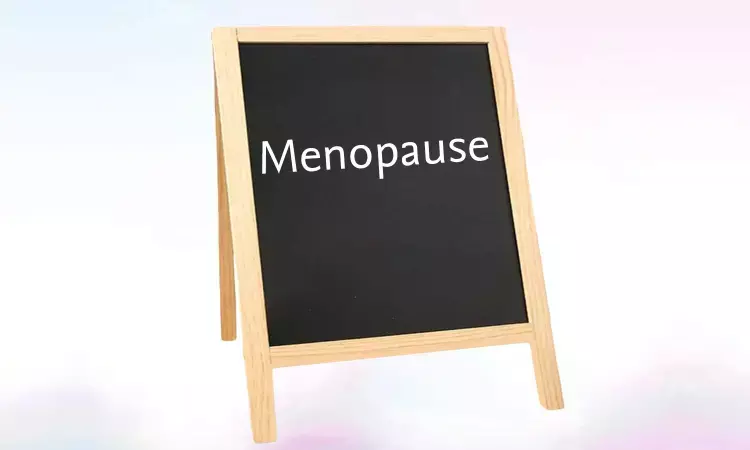- Home
- Medical news & Guidelines
- Anesthesiology
- Cardiology and CTVS
- Critical Care
- Dentistry
- Dermatology
- Diabetes and Endocrinology
- ENT
- Gastroenterology
- Medicine
- Nephrology
- Neurology
- Obstretics-Gynaecology
- Oncology
- Ophthalmology
- Orthopaedics
- Pediatrics-Neonatology
- Psychiatry
- Pulmonology
- Radiology
- Surgery
- Urology
- Laboratory Medicine
- Diet
- Nursing
- Paramedical
- Physiotherapy
- Health news
- Fact Check
- Bone Health Fact Check
- Brain Health Fact Check
- Cancer Related Fact Check
- Child Care Fact Check
- Dental and oral health fact check
- Diabetes and metabolic health fact check
- Diet and Nutrition Fact Check
- Eye and ENT Care Fact Check
- Fitness fact check
- Gut health fact check
- Heart health fact check
- Kidney health fact check
- Medical education fact check
- Men's health fact check
- Respiratory fact check
- Skin and hair care fact check
- Vaccine and Immunization fact check
- Women's health fact check
- AYUSH
- State News
- Andaman and Nicobar Islands
- Andhra Pradesh
- Arunachal Pradesh
- Assam
- Bihar
- Chandigarh
- Chattisgarh
- Dadra and Nagar Haveli
- Daman and Diu
- Delhi
- Goa
- Gujarat
- Haryana
- Himachal Pradesh
- Jammu & Kashmir
- Jharkhand
- Karnataka
- Kerala
- Ladakh
- Lakshadweep
- Madhya Pradesh
- Maharashtra
- Manipur
- Meghalaya
- Mizoram
- Nagaland
- Odisha
- Puducherry
- Punjab
- Rajasthan
- Sikkim
- Tamil Nadu
- Telangana
- Tripura
- Uttar Pradesh
- Uttrakhand
- West Bengal
- Medical Education
- Industry
Post-menopause executive function decline linked to adverse childhood experiences

Adverse childhood experiences (ACE) were linked to more severe symptoms of executive dysfunction and worse performances on cognitive tasks post-surgical menopause.
AURORA - Assessment of adverse childhood experiences and current anxiety and depression symptoms may help ease cognitive distress in women who have undergone a surgical menopause for cancer risk-reduction, or RRSO.The new study has been published in Journal Menopause.
Researchers, including Dr. Neill Epperson of the University of Colorado Anschutz Medical Campus, remotely collected extensive cognitive data from women across the nation. 552 women who are BRCA1 and BRCA2 mutation carriers and have undergone RRSO completed the assessments, which measured executive function (a cognitive process that allows individuals to manage information in a planful versus reactive manner), exposure to early life stress, and mood symptoms.
Results show that adverse childhood experiences (ACE) were associated with more severe symptoms of executive dysfunction and worse performances on cognitive tasks post-surgical menopause. Changes in mood, such as anxiety and depressive symptoms, partially mediated ACE associations on subjective and objective measures of executive function. These findings indicate that assessing history of childhood adversity and current anxiety and depression symptoms may help to identify women who will experience executive cognitive complaints after surgical menopause.
This research emphasizes the importance of considering psychological state during other medical procedures. "We can't change the past for women who have experienced serious childhood adversities such as abuse, neglect, divorce, parental substance abuse, or exposure to domestic violence, but we can identify a patient population that is easily assessed for these ACEs as well as current negative mood symptoms," said Epperson, study lead investigator and professor and Chair of psychiatry at the University of Colorado School of Medicine. "Our hope is that assessment of childhood adversity and history of depression and anxiety would become part of the pre-surgical risk-benefit discussion between patients and their doctors."
"Many women have told me over the years that their doctor did not warn them about the potential brain effects of undergoing a surgical menopause. While these women may have made the same decision regarding surgery given its life preserving benefits, they indicated that they wish they had been informed about the potential cognitive and mood effects so that they could be prepared and seek treatment sooner", says Epperson.
for further references log on to:
Dr Kamal Kant Kohli-MBBS, DTCD- a chest specialist with more than 30 years of practice and a flair for writing clinical articles, Dr Kamal Kant Kohli joined Medical Dialogues as a Chief Editor of Medical News. Besides writing articles, as an editor, he proofreads and verifies all the medical content published on Medical Dialogues including those coming from journals, studies,medical conferences,guidelines etc. Email: drkohli@medicaldialogues.in. Contact no. 011-43720751


